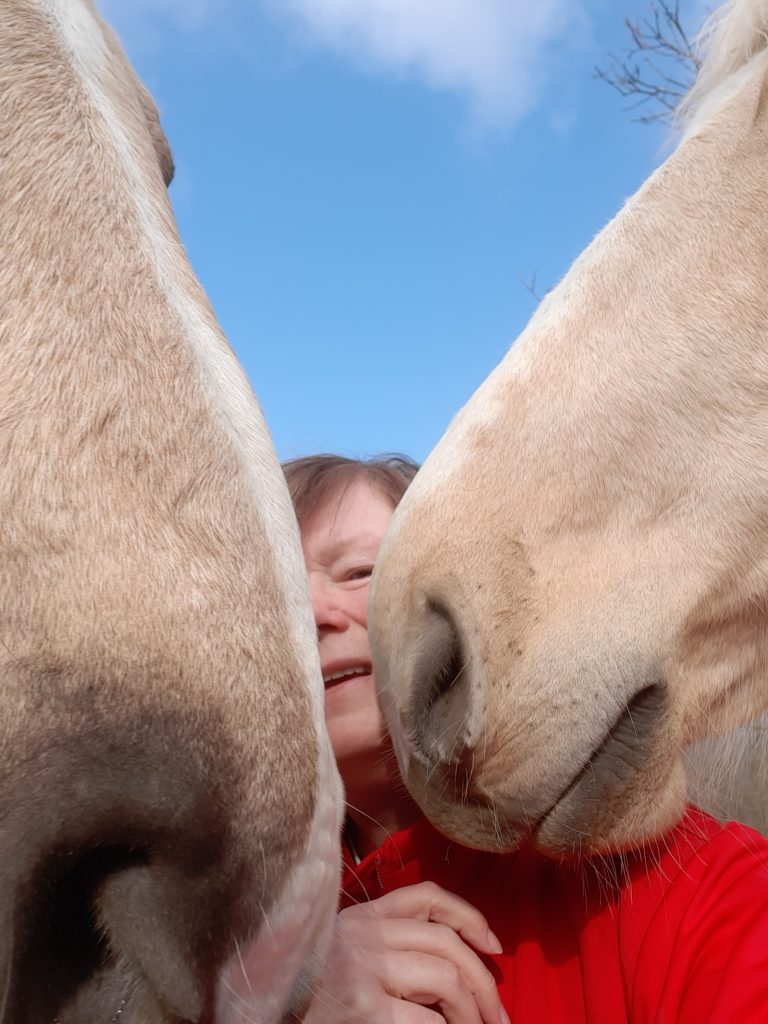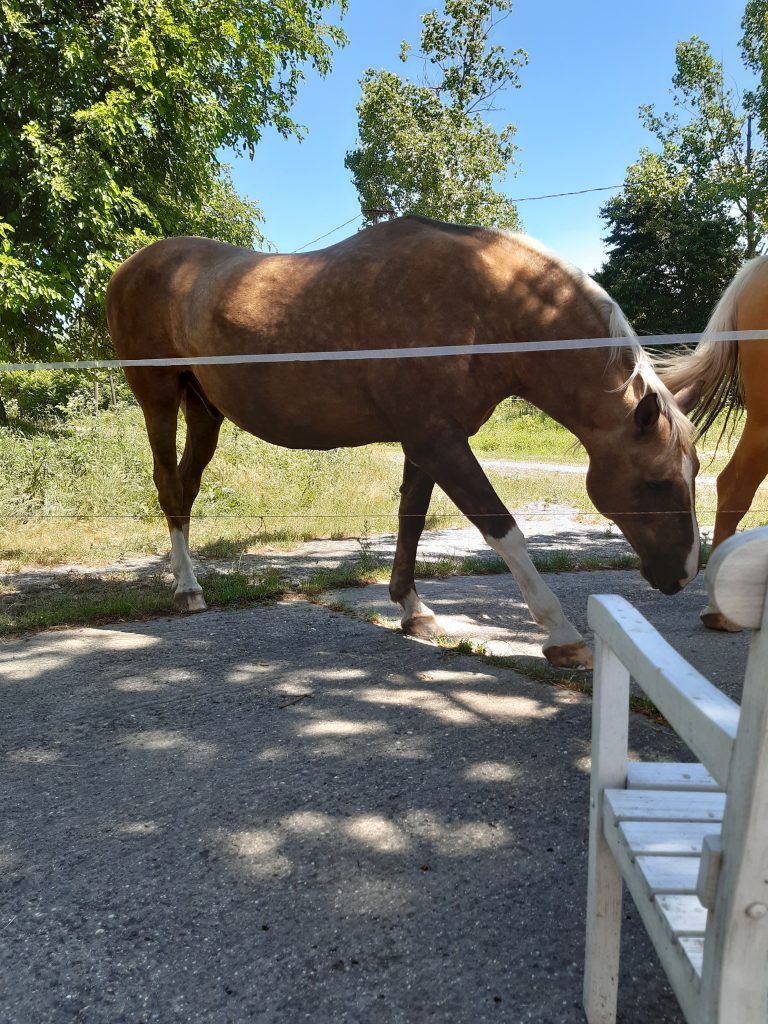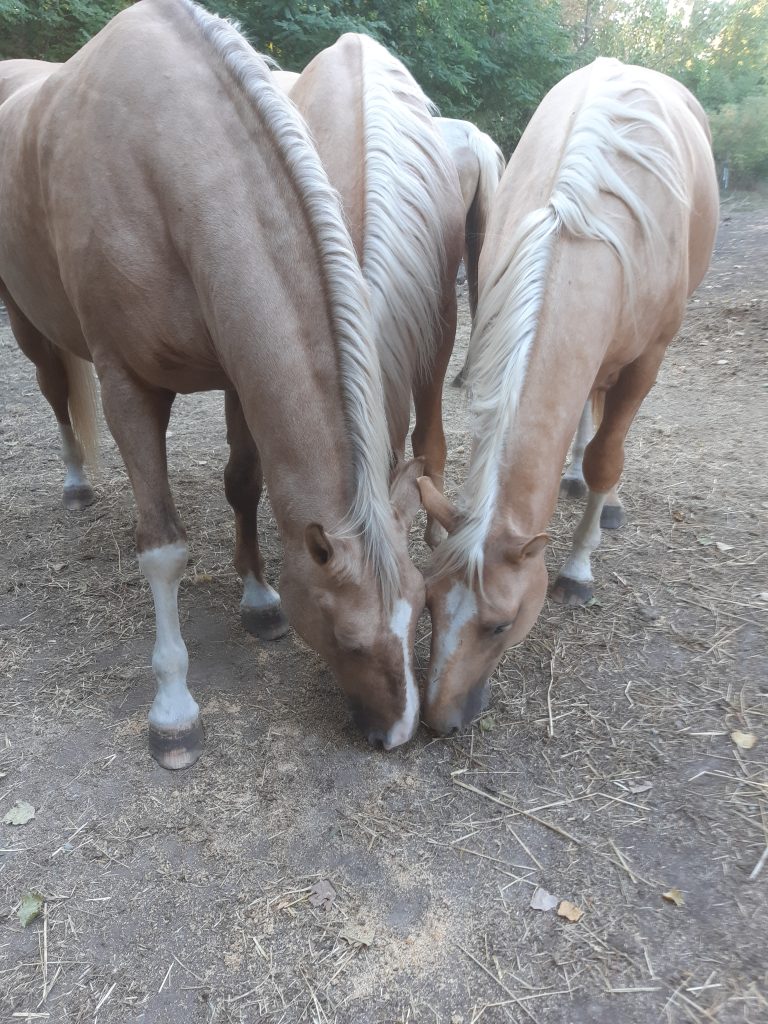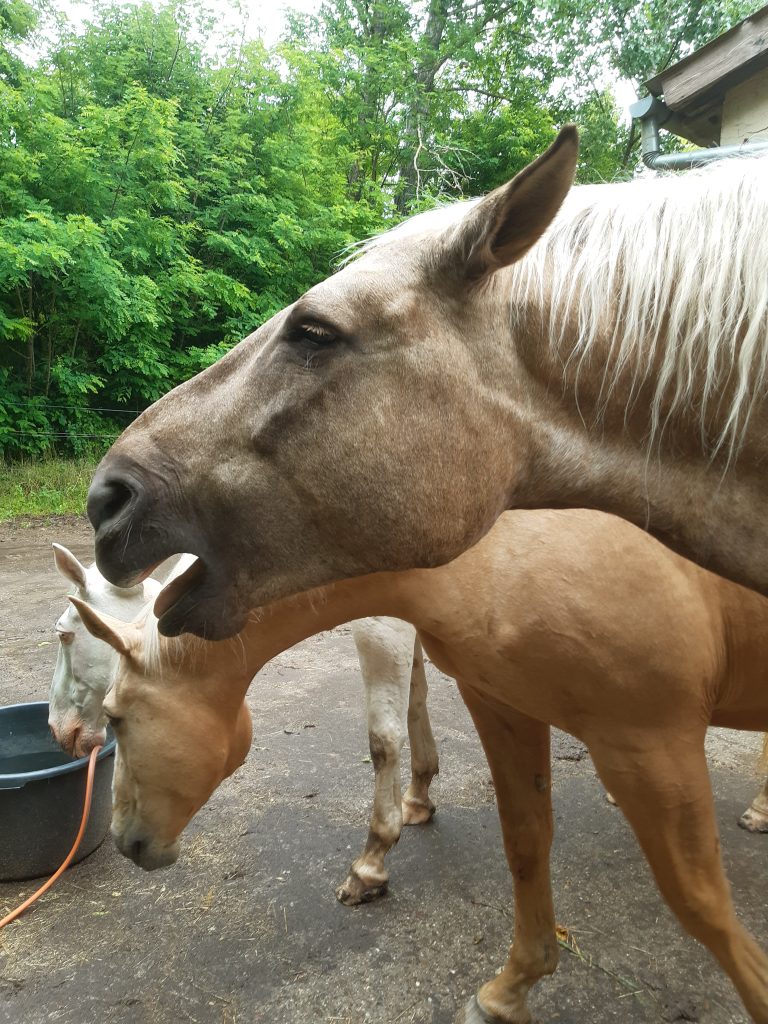Why can’t I just take a walk with my horse in the forest?
A very common question that I often get and I can understand that it feels strange if we think human-think! We like to relax, look at the birds and the leaves in the forest and it has a calming effect on us. The horse thinks the opposite: Help, should I be here alone, where are my friends, here are lions and saber-toothed tigers!!!
As long as you are in the yard and there are other horses around and you are in the place that the horse is used to, it is not that difficult for him to relax and concentrate on riding. The horse is a flight animal and these instincts are more or less present in all horses.
Temperament also plays a role, just like with us. Some are calm and others more nervous. Then it also has to do with status in the herd. If you ride a “scout” that usually has the task of informing the herd that there is something dangerous out there, it can be an “exciting” experience to ride out alone with one.
How can I manage to get out for a walk in the forest without being afraid that the horse will come home alone?
You can never be completely sure. Riding is fun but also associated with risks. However, you can work towards a good collaboration with the horse, so the risk is reduced and you can have fun together. It requires a lot of work, especially if you have a horse with a lot of nerves and who has not undergone the right training together with the rider. It requires community, training from the ground, leadership, etc
If you have a horse that doesn’t find it fun to ride alone in the forest, the best thing is to have another horse with you, who is calm and used to it, but if you are a rider who just wants to ride in the forest, I can only recommend to buy a horse that is made for this. The right breed, temperament, etc.
If you have a horse that you have had for a long time and don’t want to get rid of, but which is a bit “difficult” to ride, you can expect that it will take a lot of work before everything falls into place.
If you have a situation like this and would like help, I offer a free call where we can find out what you should do to succeed.
Order it at anneaxell.com/appointment











